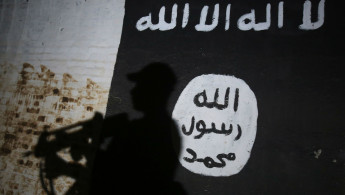IS leader aide put on US terror blacklist
A confidant of Islamic State leader Abu Bakr al-Baghdadi was put on the United States’ terror blacklist on Tuesday.
Hajji Abdel Nasir was named a "Specially Designated Global Terrorist,” Nathan Sales, the State Department's point man on counterterrorism, announced, noting the militant IS group “is down but not out.”
"As ISIS continues to lose ground on the battlefield, we must starve it of the resources it uses to commit terrorism around the world," Sales said in a statement, using an alternative acronym for the militant group.
The State Department said the decision was made in conjunction with the UN Security Council, which on Monday put Abdel Nasir on its own sanctions list.
The twin listings mean that Abdel Nasir is subject to an international asset freeze, travel ban and arms embargo. US citizens and entities are prohibited from doing business with him.
Nasir "has held several leadership positions in the Islamic State of Iraq and Syria," including heading the group's "Delegated Committee," which reports to Baghdadi and "exercises administrative control of the terrorist organisation's affairs," the State Department said.
It said the committee Abdel Nasir chaired was "responsible for planning and issuing orders related to ISIS's military operations, tax collections, religious police, and commercial and security operations."
The United States heads a military coalition striving to drive the Islamic State out of Iraq and Syria, from where the jihadist group has launched numerous attacks abroad, mostly in Europe, in recent years.
IS fighters first swept into Iraq and Syria in the summer of 2014, taking control of nearly a third of the country. At the height of the group's power its self-proclaimed caliphate stretched from the edges of Aleppo in Syria to just north of the Iraqi capital, Baghdad.
With its physical caliphate largely destroyed, IS is transforming from a "proto-state" to a covert "terrorist" network, "a process that is most advanced in Iraq" because it still controls pockets in Syria, according to a UN report.
The UN report said IS may still have up to 30,000 members roughly equally distributed between Syria and Iraq.
Follow us on Twitter: @The_NewArab





 Follow the Middle East's top stories in English at The New Arab on Google News
Follow the Middle East's top stories in English at The New Arab on Google News


![22 Arab countries at COP29 have rejected the targeting of fossil fuels [Getty]](/sites/default/files/styles/image_330x185/public/2024-11/GettyImages-2184289638.jpg?h=199d8c1f&itok=ptHl5bec)